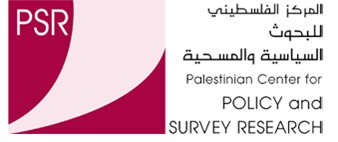The importance of combating antisemitism on campus and educations
On a sunny afternoon at Pembroke College, Oxford, I had the pleasure of interviewing Natan Sharansky, who is the former head of the Jewish Agency and the current president of the Institute for the Study of Global Antisemitism and Policy (ISGAP) on the importance of combating antisemitism on campuses and within academia. Sharansky sums up the common struggle of several, if not most, Jewish students on Western campuses today: “Many Jewish students on campus feel they have to choose between their connection to Israel and staying as an accepted part of student society.”When does anti-Zionism become antisemitism? - Barbra Streisand, Twitter
This choice that Mr. Sharansky proposed in his interview is the same one I had to make while completing my undergraduate degree in small-town Halifax, Nova Scotia. The same decision led to me working full-time towards combating antisemitism on university and college campuses. ISGAP's leadership management
Under the leadership of ISGAP management, I had the pleasure of co-organizing two events over the summer. First, an international conference on Jew Hatred at Cambridge followed by a two-week Summer Institute for Curriculum Development in Critical Antisemitism Studies at Oxford. Throughout the events, I had the privilege of learning from some of the world’s greatest scholars of antisemitism.
The lectures covered a wide range of topics, from antisemitism in Southeast Asia to human rights and lawfare, but the presentations I was most drawn to focused on the indoctrination of antisemitism in social sciences, particularly intersectionalism.
As a young Jewish immigrant from Brazil studying in Canada, I entered the liberal arts secure that my core values as a staunch zionist, feminist and progressive would be accepted. However, the more outspoken I became about Zionism, the less welcomed I was by my peers and professors.
The choice between Israel and acceptance presented itself to me in my final year of university, when I decided to branch my areas of study into social sciences. I met with an adviser who had been recommended to me by one of my friends due to their kindness and helpfulness in mapping out courses. In my meeting with her, I explained that I wanted to focus on certain topics to prepare myself for the master’s degree. I wanted to complete in Israel the following year.
Rather than helping me find adequate classes, the adviser provided me with a list of readings and courses she and other professors in the department taught about the Palestinian cause. Before I exited her office, she warned me not to tell the powerful Jewish lobby in Canada about the meeting, otherwise, they would hunt her down and try to destroy her career.
How normalized must antisemitism be, that upon the first meeting with a student, a university professor felt comfortable enough to make accusations about the powerful Jewish lobby in Canada?
Professor William Kolbrener from Bar-Ilan University, who presented and participated in both events, details why antisemitism has become integral in intersectionality: “It is not just an accidental or incidental exclusion [within intersectionality], the exclusion of the Jew is the basis of the thought. Anti-Zionism is the tell for being progressive.”
"When does anti-Zionism bleed into broad antisemitism?"
This question was posited by Jewish-American singer and actress Barbra Streisand on Saturday in a Twitter post in response to the decision by student groups at the University of California at Berkeley's School of Law to ban Zionist speakers from the campus.
Indeed, this question reflects an often debated topic of when criticism of Israel and Zionist ideology ends and Jew hatred begins.
Several prominent members of Jewish Twitter (JTwitter) were quick to respond to Streisand's question, and many were of the opinion that anti-Zionism itself is antisemitism.
"Pretty early," noted Deputy Mayor of Jerusalem Fleur Hassan-Nahoum.
"Anti-Zionism, the belief that the State of Israel should not and must not exist as a Jewish state, is antisemitism. Either in intent, in effect, or both," explained Jewish activist and recent Israeli immigrant Blake Flayton.
He also added: "When does anti-feminism bleed into broad sexism? Spoiler alert."
"Denying the Jewish right to self determination is by definition, antisemitic," tweeted the watchdog NGO StopAntisemitism.
"In the end they always come for all of us. Modern day antisemitism just has a new target: Zionism."
Said former MK Michal Cotler-Wunsh: "When Zionist = code for Jew after systematic process to demonize, delegitimize & apply double standards; & ‘traditional’ antisemitism barring individual Jew from equal place in society mutates to ‘modern’ form, barring Jewish state from equal place among nations."







































